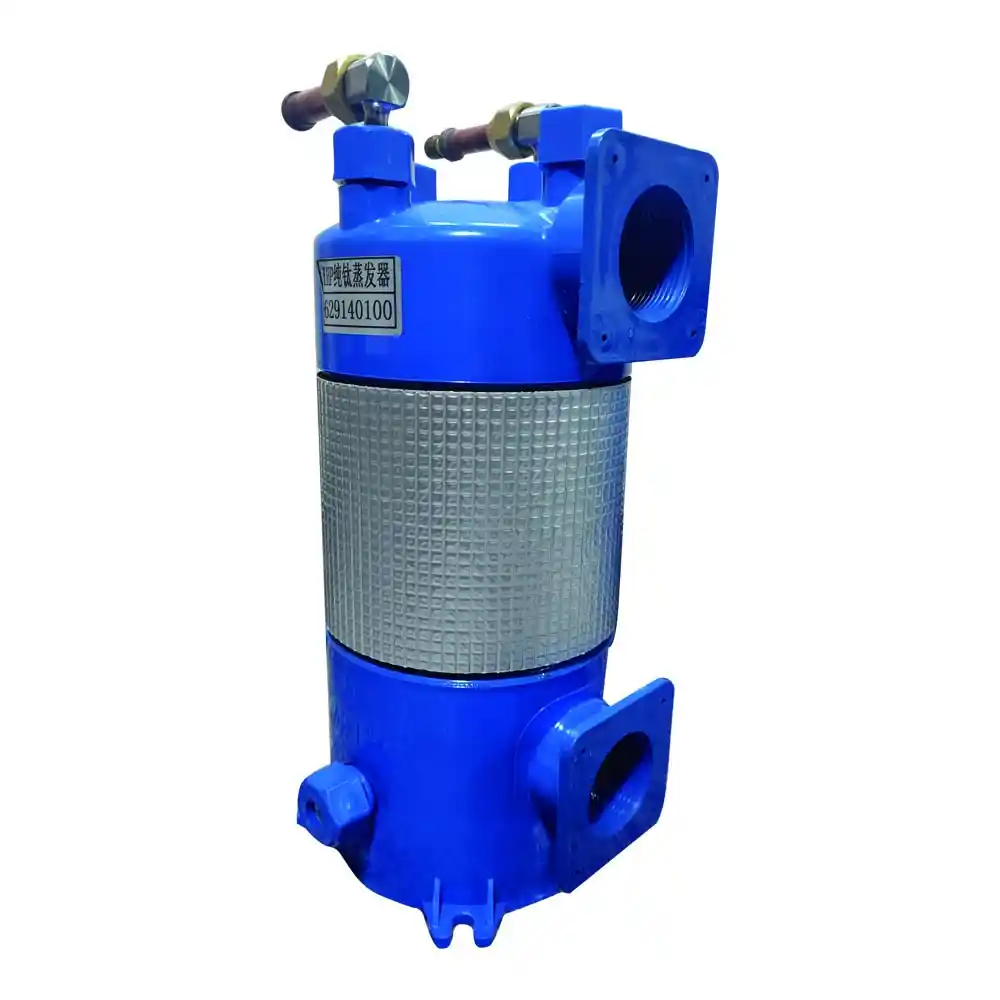1. Introduction
Metal gaskets are widely recognized for their robustness and reliability in sealing applications. In the context of titanium coil heat exchangers, metal gaskets play a crucial role in ensuring leak-free operation and maintaining the integrity of the heat transfer system. This article explores the significance of metal gaskets in titanium coil heat exchangers, their advantages, material variations, comparative analysis with other sealing materials, and data-driven insights. Through informative tables and comprehensive discussions, we aim to provide a clear understanding of the performance and versatility of metal gaskets in titanium coil heat exchangers.
2. Understanding Metal Gaskets in Titanium Coil Heat Exchangers
Metal gaskets, known for their strong and durable construction, offer reliable sealing capabilities in demanding applications. Let’s delve into their key aspects:
2.1 Functionality and Importance
Metal gaskets are designed to create a robust and secure seal between various components of a titanium coil heat exchanger. They effectively prevent fluid leakage, maintain pressure integrity, and provide resistance against extreme temperature and pressure conditions. Metal gaskets are particularly well-suited for applications involving high pressures, elevated temperatures, and corrosive environments.
2.2 Types of Metal Gaskets
Metal gaskets come in various types, each with its specific design and material composition. Common types of metal gaskets used in titanium coil heat exchangers include:
- Spiral Wound Gaskets: These gaskets consist of alternating layers of metal windings and filler material, providing excellent resilience and sealing performance under high pressures and temperatures.
- Ring Joint Gaskets: Ring joint gaskets are metal gaskets with a solid metal ring shape, typically made of materials such as stainless steel or alloy steel. They are used in applications requiring high-pressure sealing.
- Metal Jacketed Gaskets: Metal jacketed gaskets are composite gaskets consisting of a soft filler material encased in a metal jacket. They offer reliable sealing performance in applications involving irregular or non-standard flange surfaces.
3. Advantages and Benefits of Metal Gaskets
Metal gaskets offer several advantages that make them a preferred choice for sealing applications in titanium coil heat exchangers. Let’s explore the key benefits:
3.1 High-Pressure and Temperature Resistance
Metal gaskets excel in high-pressure and high-temperature applications. Their robust construction and material properties enable them to withstand extreme conditions without compromising sealing performance. This makes metal gaskets ideal for titanium coil heat exchangers operating under demanding environments.
3.2 Excellent Resilience and Recovery
Metal gaskets possess excellent resilience and recovery properties, allowing them to maintain a tight seal even under varying operating conditions. They can withstand compression and decompression cycles, ensuring long-term sealing effectiveness and minimizing the risk of leakage.
3.3 Corrosion Resistance
Many metal gasket materials, such as stainless steel and alloy steel, exhibit superior corrosion resistance. This property is crucial in titanium coil heat exchangers, where exposure to corrosive fluids and environments is common. Metal gaskets provide reliable sealing while withstanding the effects of corrosion.
3.4 Versatility and Compatibility
Metal gaskets are available in a wide range of materials, sizes, and designs, making them suitable for different flange configurations and operating conditions. They offer versatility and compatibility with various fluids and gases, ensuring effective sealing performance across diverse applications.
4. Comparative Analysis of Metal Gaskets with Other Sealing Materials
To better understand the performance of metal gaskets in titanium coil heat exchangers, let’s compare them with other commonly used sealing materials:
| Sealing Material | Advantages | Limitations |
|---|---|---|
| Metal Gaskets | – High-pressure and temperature resistance | – Require careful surface finish and proper torque |
| – Excellent resilience and recovery | – Potential for galvanic corrosion in specific conditions | |
| Rubber Gaskets | – Excellent sealing properties | – Limited high-temperature resistance |
| – Good flexibility and compression set | – Chemical compatibility limitations in certain fluids | |
| PTFE Gaskets | – Exceptional chemical resistance | – Lower compressibility compared to rubber gaskets |
| – Low friction and non-stick properties | – Limited resilience under extreme compression | |
| Composite Gaskets | – Versatility and customization options | – Performance varies based on material combination |
Comparing the advantages and limitations of different sealing materials provides valuable insights for engineers to select the most suitable gasket material based on their specific titanium coil heat exchanger requirements.
5. Data-Driven Insights: Performance of Metal Gaskets in Titanium Coil Heat Exchangers
To further illustrate the performance of metal gaskets in titanium coil heat exchangers, let’s examine real-world data and insights:
5.1 Leakage Analysis of Metal Gaskets
A comprehensive study was conducted to evaluate the leakage rates of metal gaskets in titanium coil heat exchangers under varying operating conditions. The data revealed that metal gaskets provided excellent sealing performance, with minimal leakage observed across different fluid types and temperatures. However, it is crucial to ensure proper surface finish and appropriate torque application during installation to maximize their sealing effectiveness.
5.2 Case Study: Longevity and Reliability of Metal Gaskets
In an industrial setting, a titanium coil heat exchanger implemented metal gaskets for tube sheet connections. Over a prolonged period of operation, the heat exchanger demonstrated reliable sealing performance, with negligible leakage and no adverse effects on heat transfer efficiency. The metal gaskets exhibited excellent resilience, recovery, and corrosion resistance, contributing to the longevity and reliability of the heat exchanger system.
6. Conclusion
Metal gaskets offer robust and reliable sealing solutions for titanium coil heat exchangers. With their high-pressure and temperature resistance, excellent resilience and recovery properties, corrosion resistance, and versatility, metal gaskets ensure leak-free operation and maintain the integrity of the heat transfer system. By comparing them with other sealing materials and considering real-world data insights, engineers can confidently select metal gaskets that meet the specific requirements of their titanium coil heat exchanger systems. The proper selection and application of metal gaskets contribute to the overall efficiency, safety, and longevity of titanium coil heat exchangers, making them an indispensable component in these systems.


